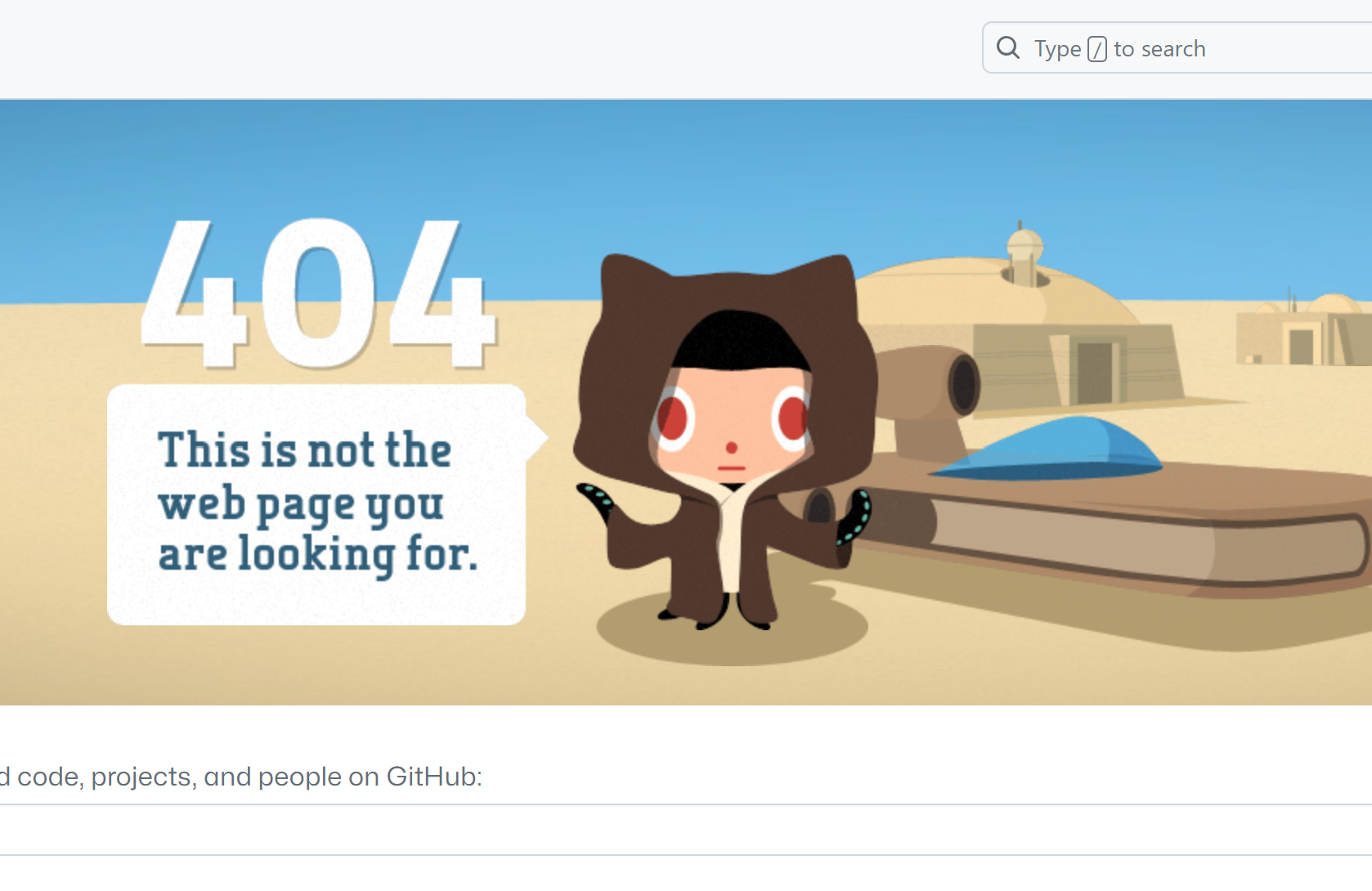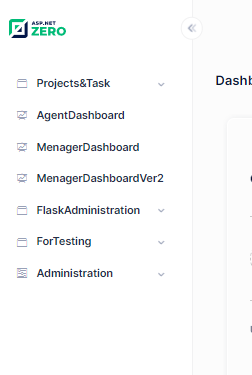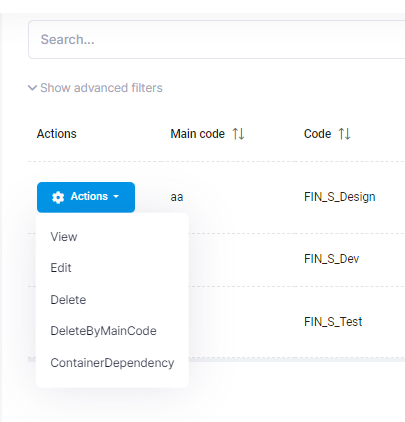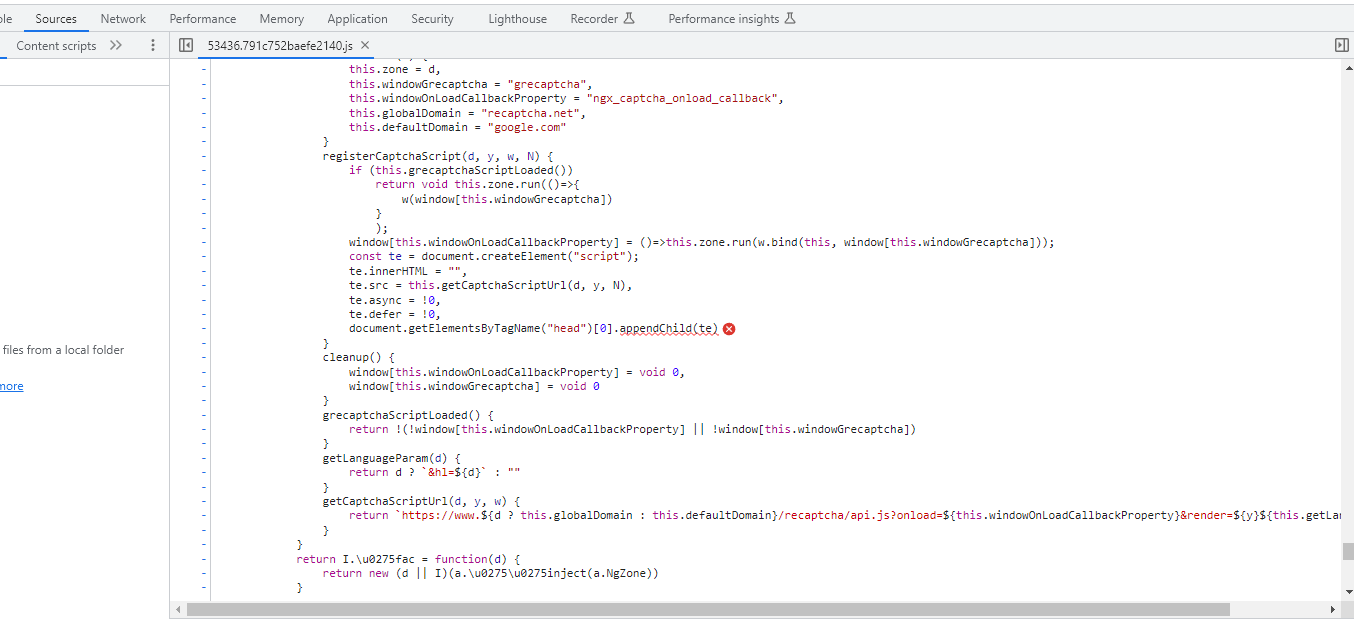Activities of "flaskone"
Is it possible to prepare such a scenario and is it a good direction:
User logged as the host:
- creates roles for Tenants,
- assigns permissions to roles,
- can see all roles for all tenants, edit, delete, etc.,
User logged within particular tenant:
- can see only roles
- (admin of tenant) can assign a user to roles (roles should work additively - if the user has 2 roles, it is enough some permission is granted only in one of them)
When I try to add a new tenant I get message:
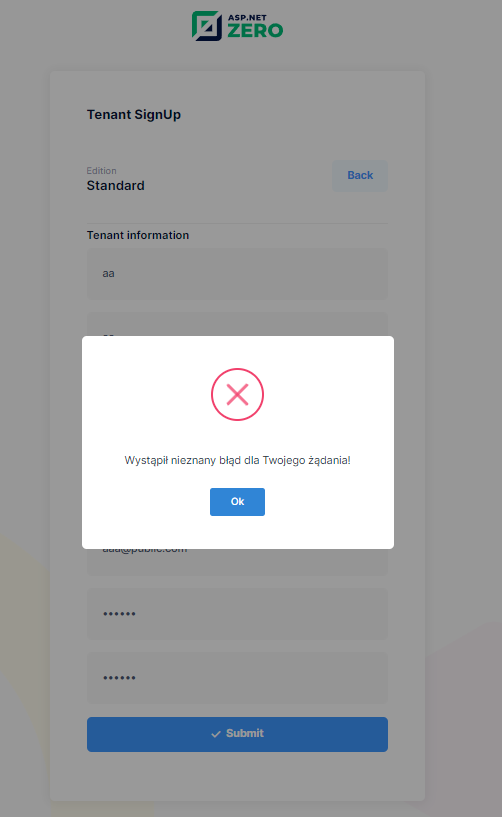
from log.txt description of this error:
ERROR 2024-03-05 13:50:41,970 [orker] Mvc.ExceptionHandling.AbpExceptionFilter - Setting value for 'Abp.Net.Mail.DefaultFromAddress' is null or empty!
Abp.AbpException: Setting value for 'Abp.Net.Mail.DefaultFromAddress' is null or empty!
at Abp.Net.Mail.EmailSenderConfiguration.GetNotEmptySettingValue(String name)
at Abp.Net.Mail.EmailSenderConfiguration.get_DefaultFromAddress()
at Abp.Net.Mail.EmailSenderBase.NormalizeMail(MailMessage mail)
at Abp.Net.Mail.EmailSenderBase.SendAsync(MailMessage mail, Boolean normalize)
at FlaskOne.Authorization.Users.UserEmailer.ReplaceBodyAndSendAsync(String emailAddress, String subject, StringBuilder emailTemplate, StringBuilder mailMessage) in D:\RW\PROGRAMING\PROJECTS\FLASK_ONE\SaaS\aspnet-core\src\FlaskOne.Core\Authorization\Users\UserEmailer.cs:line 486
at FlaskOne.Authorization.Users.UserEmailer.<>c__DisplayClass12_0.<<SendEmailActivationLinkAsync>b__0>d.MoveNext() in D:\RW\PROGRAMING\PROJECTS\FLASK_ONE\SaaS\aspnet-core\src\FlaskOne.Core\Authorization\Users\UserEmailer.cs:line 127
--- End of stack trace from previous location ---
at Abp.Domain.Uow.UnitOfWorkManagerExtensions.WithUnitOfWorkAsync(IUnitOfWorkManager manager, Func1 action, UnitOfWorkOptions options) at FlaskOne.Authorization.Users.UserEmailer.SendEmailActivationLinkAsync(User user, String link, String plainPassword) in D:\RW\PROGRAMING\PROJECTS\FLASK_ONE\SaaS\aspnet-core\src\FlaskOne.Core\Authorization\Users\UserEmailer.cs:line 80 at FlaskOne.MultiTenancy.TenantManager.CreateWithAdminUserAsync(String tenancyName, String name, String adminPassword, String adminEmailAddress, String connectionString, Boolean isActive, Nullable1 editionId, Boolean shouldChangePasswordOnNextLogin, Boolean sendActivationEmail, Nullable1 subscriptionEndDate, Boolean isInTrialPeriod, String emailActivationLink, String adminName, String adminSurname) in D:\RW\PROGRAMING\PROJECTS\FLASK_ONE\SaaS\aspnet-core\src\FlaskOne.Core\MultiTenancy\TenantManager.cs:line 179 at FlaskOne.MultiTenancy.TenantRegistrationAppService.RegisterTenant(RegisterTenantInput input) in D:\RW\PROGRAMING\PROJECTS\FLASK_ONE\SaaS\aspnet-core\src\FlaskOne.Application\MultiTenancy\TenantRegistrationAppService.cs:line 101 at lambda_method2828(Closure, Object) at Microsoft.AspNetCore.Mvc.Infrastructure.ActionMethodExecutor.AwaitableObjectResultExecutor.Execute(ActionContext actionContext, IActionResultTypeMapper mapper, ObjectMethodExecutor executor, Object controller, Object[] arguments) at Microsoft.AspNetCore.Mvc.Infrastructure.ControllerActionInvoker.<InvokeActionMethodAsync>g__Awaited|12_0(ControllerActionInvoker invoker, ValueTask1 actionResultValueTask)
at Microsoft.AspNetCore.Mvc.Infrastructure.ControllerActionInvoker.<InvokeNextActionFilterAsync>g__Awaited|10_0(ControllerActionInvoker invoker, Task lastTask, State next, Scope scope, Object state, Boolean isCompleted)
at Microsoft.AspNetCore.Mvc.Infrastructure.ControllerActionInvoker.Rethrow(ActionExecutedContextSealed context)
at Microsoft.AspNetCore.Mvc.Infrastructure.ControllerActionInvoker.Next(State& next, Scope& scope, Object& state, Boolean& isCompleted)
at Microsoft.AspNetCore.Mvc.Infrastructure.ControllerActionInvoker.<InvokeInnerFilterAsync>g__Awaited|13_0(ControllerActionInvoker invoker, Task lastTask, State next, Scope scope, Object state, Boolean isCompleted)
at Microsoft.AspNetCore.Mvc.Infrastructure.ResourceInvoker.<InvokeNextExceptionFilterAsync>g__Awaited|26_0(ResourceInvoker invoker, Task lastTask, State next, Scope scope, Object state, Boolean isCompleted)
That's true. I don't want to fill in this data because my company email account uses two stages of authentication: a password and the Microsoft Authenticator application and it doesn't work in this case either. If I use a private email account where I only have the password, creating a new tenant works fine.
I need one of two solutions.
- Switch off this functionality for now,
- be able to use your account with double authentication.
Is this solution a good solution when I have a few different menus? I need a completely different menu for one tenant than for another.
For example, one tenant has a menu:
- Tasks
-
- View
-
- Calculations
but the second tenant one has:
- Project
-
- Management
-
- Generator
e.t.c.
In my case, it does not depend on editions.
I quote info from https://aspnetboilerplate.com/Pages/Documents/Feature-Management Most SaaS (multi-tenant) applications have editions (packages) that have different features. This way, they can provide different price and feature options to their tenants (customers).
Thanks, for your help, you're right I forgot.
Hi My version is 11.4.0 , .net core, and angular.
I have a problem with adding one class to serve DynamicEntityProperty to one class in UI. My class AppDynamicEntityPropertyDefinitionProvider looks like this:
public override void SetDynamicEntityProperties(IDynamicEntityPropertyDefinitionContext context) { context.Manager.AddAllowedInputType<SingleLineStringInputType>(); context.Manager.AddAllowedInputType<ComboboxInputType>(); context.Manager.AddAllowedInputType<CheckboxInputType>(); context.Manager.AddAllowedInputType<MultiSelectComboboxInputType>(); //Add entities here context.Manager.AddEntity<User, long>(); context.Manager.AddEntity<FlaskTask,long>(); context.Manager.AddEntity<FlaskCustomer,long>(); context.Manager.AddEntity<FlaskUserExt,long>();
If I added code to my angular project according to Dynamic Property System
and logged info about this.entityNamesHasDynamicProperty DynamicEntityPropertyManagerComponent in hasEntity like:

I see that result:
hasEntity FlaskOne.Authorization.Users.User,FlaskOne.Flask.FlaskCustomers.Models.FlaskCustomer,FlaskOne.Flask.FlaskUsers.Models.FlaskUserExt
I don't see FlaskTask class.
Part of FlaskTaskComponent in Angular
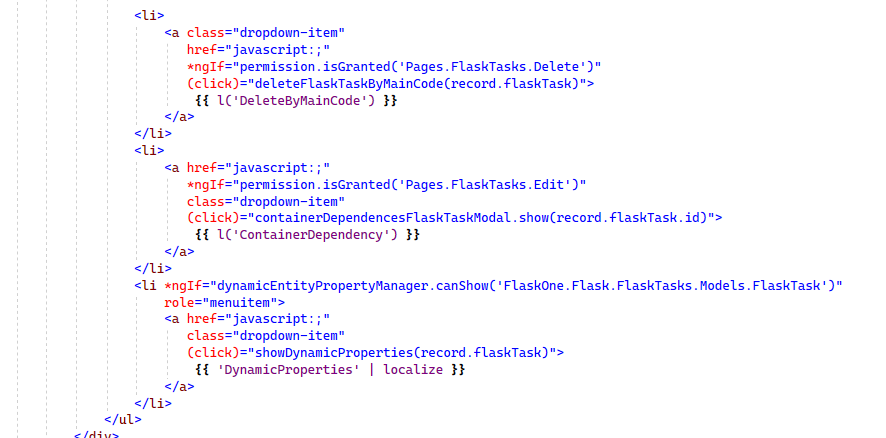
in the backend code, the head of class looks like this:
but for other my class FlaskUserExt I see the:

what is wrong with my FlaskTask class that I don't see that menu ?
OK, thank you, I see that angular code is used recaptcha in 3 versions ( ReCaptchaV3Service ). I will have to do the service in version 2 myself.
Thank you, its works when I used Recaptcha version 3. Is it possible to use version 2 ? I didn't see any effect when I pushed submit button after setting tenant information. Absolutely nothing happened. I stayed on the same registration page.
